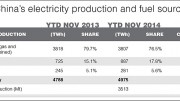The March 2012 federal budget in Canada sent shockwaves through the nation’s resource sectors when it announced the scheduled phase-out of the overseas employment tax credit (OETC) by 2016. Now, Canadian mining and metals companies undertaking resource exploration abroad will have to think more strategically than ever when it comes to attracting talent and keeping their growth strategies on schedule over the next four years.
Mining and metals companies operate in some of the most hard-to-reach regions of the world, and maintaining a skilled workforce can be a challenge.
The government recognized this challenge when it created the OETC, which eliminates 80% of Canadian income tax on the first $100,000 of remuneration earned from qualifying overseas employment. While the OETC alleviated the challenges Canadian resource companies face when recruiting talent to positions that are difficult to fill, the credit was not created solely as a recruitment tool.
The OETC was first introduced in the 1979 federal budget to improve Canadian companies’ international competitiveness by enhancing their ability to enter and operate in foreign markets. But since its inception, corporate tax rates have fallen considerably, easing the financial pressure on companies in Canada’s resource sectors.
Further, in the minds of many, Canada’s mining and metal companies are financially fit to support their own overseas initiatives. After weathering the financial downturn, these cash-rich companies are no longer letting economic uncertainty postpone their growth agendas.
So while the OETC phase-out may come as a shock, it isn’t necessarily a surprise.
The real challenge remains attracting and retaining talent — that’s where the elimination of the credit is going to pack the biggest punch for companies nationwide. An impending global skills shortage already threatens to slow growth and increase costs. Pair that challenge with the elimination of the OETC, and we could see a much more significant impact on the ability of Canadian mining and metals companies to address the already difficult task of attracting Canadian skilled workers to remote regions.
During the phase-out period, the 80% factor applied to an individual’s qualifying overseas employment income will be reduced to 60% for the 2013 taxation year, 40% for 2014, 20% for 2015 and nil for 2016 and subsequent taxation years.
Similarly, the $80,000 limit on qualifying overseas employment income will be reduced to $60,000 for the 2013 taxation year, $40,000 for 2014, $20,000 for 2015 and nil for 2016 and subsequent taxation years.
On the upside, under proposed transitional rules, the phase-out rules will not apply to qualifying foreign employment income earned by an employee in connection with a project or activity that the employer committed in writing before March 29, 2012. That means the OETC will continue to be available at the 80% factor, and on up to $80,000 of qualifying income, for the 2013–2015 taxation years for these projects. However, any new projects after March 29, 2012, will be subject to the phase-out.
As the OETC phases out, the cost of doing business in foreign jurisdictions could rise, forcing employers to increase the stakes on compensation and salary packages — a possibility mining companies need to think about sooner, not later.
Companies affected by the phase-out of the OETC should review their compensation programs and policies and make appropriate revisions. By performing cost-modelling, companies can estimate the financial impact of the OETC phase-out to their eligible employees, and potentially to themselves. These companies may seek alternative ways to deliver the value of lost OETC benefits in order to retain their skilled employees.
— Based in Vancouver, Bruce Sprague is a partner in Ernst & Young’s Tax Services practice. Please visit www.ey.com for more information.




Be the first to comment on "Commentary: Canadian miners’ ability to attract talent takes hit"